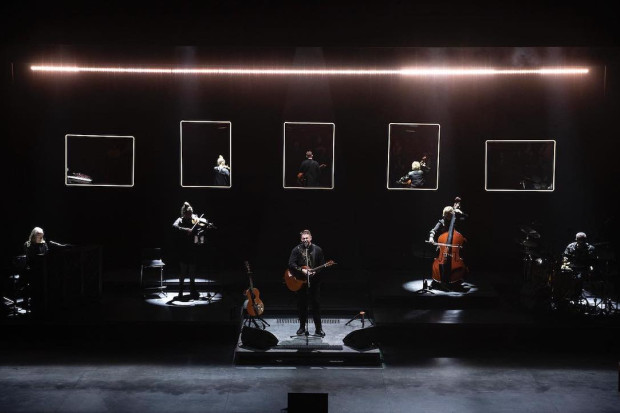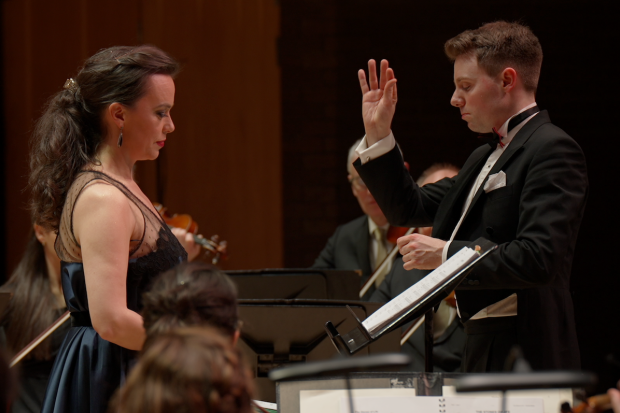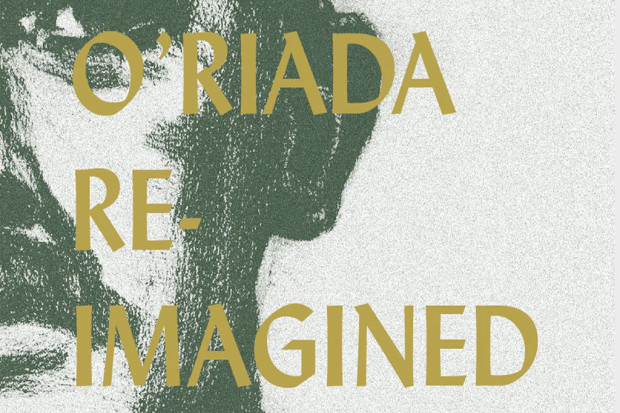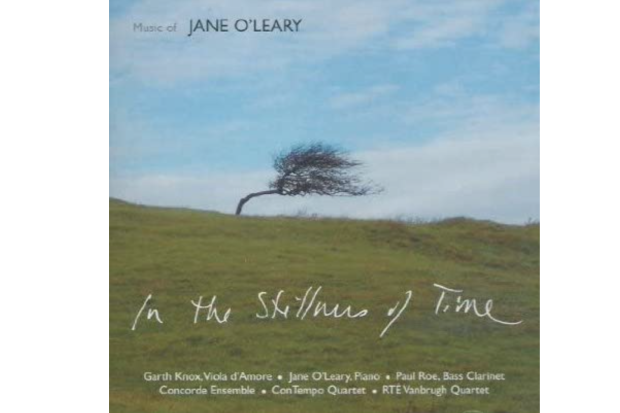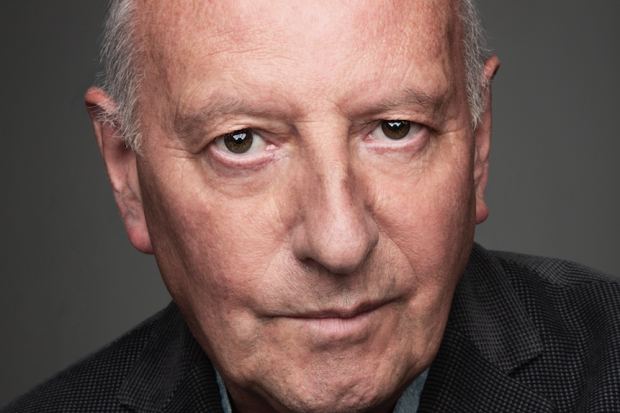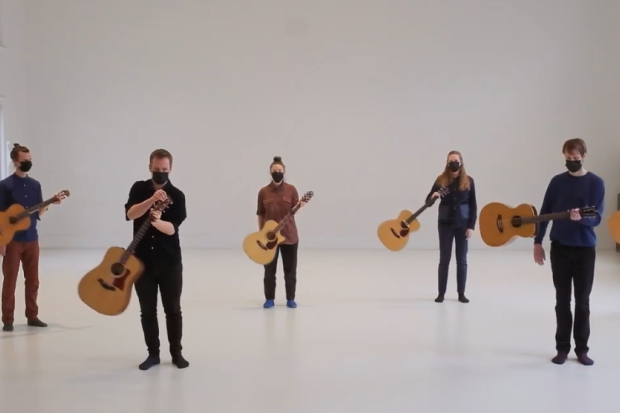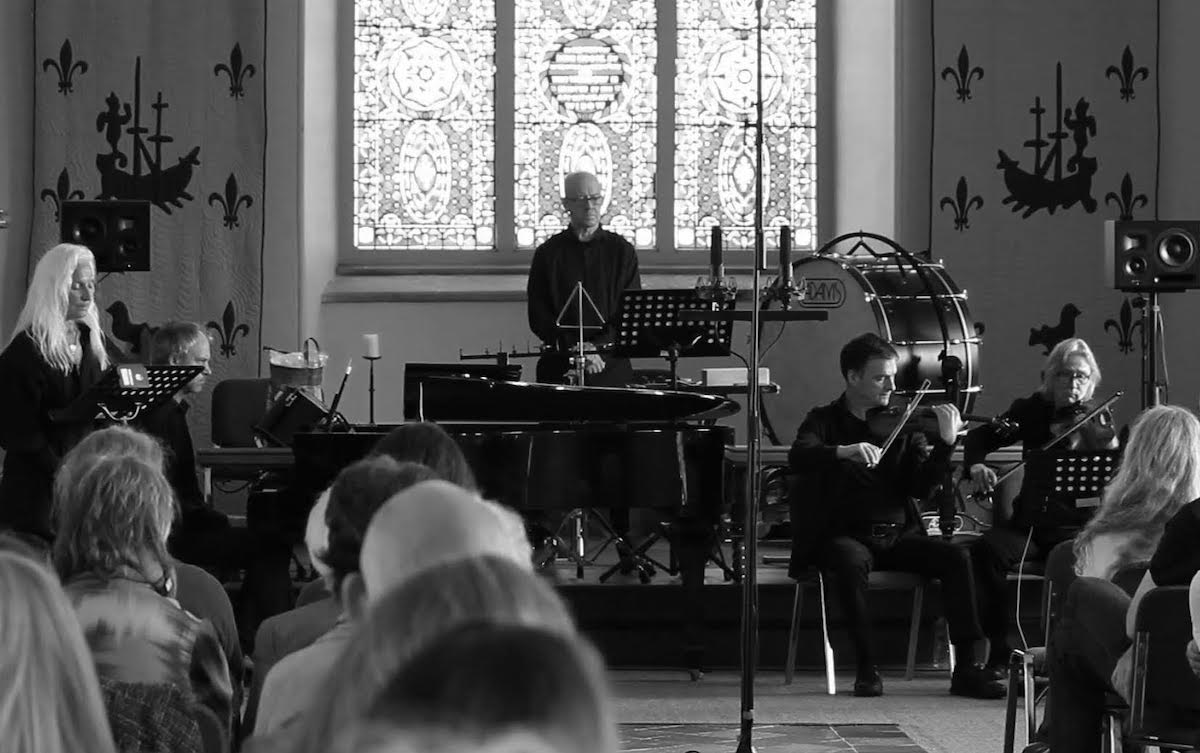
Olwen Fouéré, David Bremner, and Apartment House musicians Christopher Brannick, Gordon MacKay, and Bridget Carey. (Photo: Alannagh Brennan).
Not a Journey But a Place
I’ve often found myself thinking about the Wandelweiser Group – the loose collective of composers whose work treats silence as a primary musical ingredient – and their relationship to John Cage, in particular his seminal 4’33”. Cage’s work is clearly an influence, but Wandelweiser composers’ treatment of silence can have the opposite effect. In 4’33”, Cage was inviting listeners to explore the sounds made around the audience while the musicians didn’t play. In Wandelweiser, at least in my experience, the silence creates a gentle, lingering anticipation for the next note, or the next sound.
Sunday 8 May saw the Irish première of asleep, wind, voice, poe, the 2013 work by the American Wandelweiser composer Michael Pisaro-Liu, hosted by Louth Contemporary Music Society at Carlingford Heritage Centre. The British contemporary music group Apartment House, in their first performance in Ireland, were joined on stage by pianist David Bremner, audio producer David Stalling, and actor Olwen Fouéré.
Let’s get the obvious joke out of the way and just note that we’ve waited through two years of isolation to sit in a roomful of people listening to a long meditation on solitude. Asleep, wind, voice, poe is a 90-minute work for voice, trio, piano, and field recordings. The voice draws the ear most consistently. It takes texts by Edgar Allen Poe and Raoul Vaneigem – each just a couple of lines long– and looks at them like light through a prism, the words drifting in space as a series of disjuncted syllables, vowel sounds, and consonant clusters. In hearing it – and I’ve had this experience with Pisaro-Liu’s music before, though with notes more often than with words – the feeling wavers between anticipating the next sound (‘jan…u…ar…’ will be followed by ‘…y’) and lingering in the sound for its own sake (like an isolated ‘oo’).
Olwen Fouéré is known for her performances of Beckett and James Joyce, and there’s a feeling of Beckett in the way this work treats language. I found myself recalling Not I, Beckett’s play in which a mouth tells a story with staggering rapidity. In many ways, the works are opposites, but in both cases the sound of the language lingers more than its meaning
Fouéré performed against a backdrop of continuous, though minimal, sound. The field recordings by David Stalling were made inside and outside the venue, rarely more than the rustle of wind or the crunch of gravel – although one enchanting moment of serendipity saw a bird outside the venue begin to sing moments before birdsong began in the recording. Apartment House, playing strings and percussion, generally held long notes or sounds, with David Bremner’s piano entering occasionally for a single tone.
A change in weather
Music like this resists narrative implications. Each section of the work is not a journey but a place. A new note, which may arrive after a couple of minutes of the same chord, feels not like a change in direction but like a change in weather. And with music this slow and delicate, the appearance of a simple major third in the strings has a surprisingly pronounced brightening effect; the addition of a single dissonant note in the bass of the piano gives a heightened friction. Throughout, you feel like your senses are especially attuned to small changes.
When the audience is that attuned, and the music is that still, every note of the performance matters. For the string players of Apartment House, this meant bowing a continuous note, cleanly and consistently, for minutes at a time. Likewise the percussionist, bowing crotales or wood blocks, or slowly letting handfuls of rice rain onto a drum. Though the music is still, it requires immense concentration.
This has been the first in-person concert staged by Louth Contemporary Music Society since the beginning of the pandemic, after cancellations in 2020 and an online festival (the best I attended) last year. And, obvious jokes aside, the work itself, through the live performance and the field recordings made onsite was as much a reflection of, and a meditation on, the physicality of the space it inhabited, as it was of the musical spaces it created.
Visit: www.louthcms.org
Published on 11 May 2022
Brendan Finan is a teacher and writer. Visit www.brendanfinan.net.












